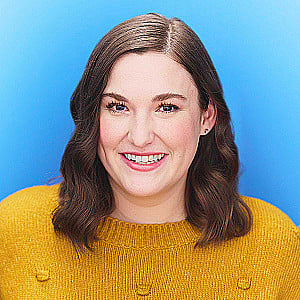VICE News - The best opioid addiction treatment is more opioids
Description
Vocal Characteristics
Language
EnglishVoice Age
Young Adult (18-35)Accents
North American (General) North American (US Midwest- Chicago, Great Lakes)Transcript
Note: Transcripts are generated using speech recognition software and may contain errors.
it seems like a paradox. Most doctors agree that the best way to treat opioid addiction is with other opioids. How can that be? The answer tells us a lot about the addiction that's driving the opioid epidemic, which killed 33,000 people in 2015. We often think of addiction as all or nothing. People are addicts or they're sober. But opioids are so powerful that they change our brain chemistry. That's why fixing the crisis means changing the way that we think about treating addiction. Opioid is a term for drugs that bind to proteins called opioid receptors. In certain cells. The binding stimulates the brain's reward system, and that releases dopamine. When you start taking opioids, this can produce a euphoric feeling and leaves your brain wanting more dopamine. At the same time, opioids slow down many of your body's processes, which is why overdoses can be fatal. If you take opioids for any prolonged period, your tolerance for them will go up and you'll need bigger doses to get the same effect. When the opioids are gone, your body systems swing in the opposite direction. That's withdrawal. The process is so unpleasant that avoiding it becomes a key reason for people to keep taking drugs, even if you do get through it cold turkey. You'll still crave opioids because your brain is trained to want more dopamine than it makes on its own. The vast majority of people who try to quit without assistance end up relapsing. That's where using medications comes in. Mhm. There are three for opioid addiction, methadone and buprenorphine. Activate your receptors to different degrees and help you avoid withdrawal. But they're carefully dosed and work slowly so you don't feel as strong as high and can function productively. Now trek zones simply blocks other opioids, meaning even if you use heroin, you're unlikely to get high. That's also true for the other two meds. Okay, so if these meds are so great, why doesn't everyone use them? Medication is expensive, and access to care could be really limited, depending on where you live. And then there's the strong stigma around them. Many people view medication as a cheat, and they don't want to use it. And lots of people oppose any drug use at all and think abstinence is the only real way to get clean, like with any other medication. These can work differently for each person. Some people will be able to taper their doses, but many stay on it for life. And most people also need therapy and other social support to stay clean. Still, all of the experts we talked to agree that for drugs as powerful as opioids, you need other drugs to help you quit.
